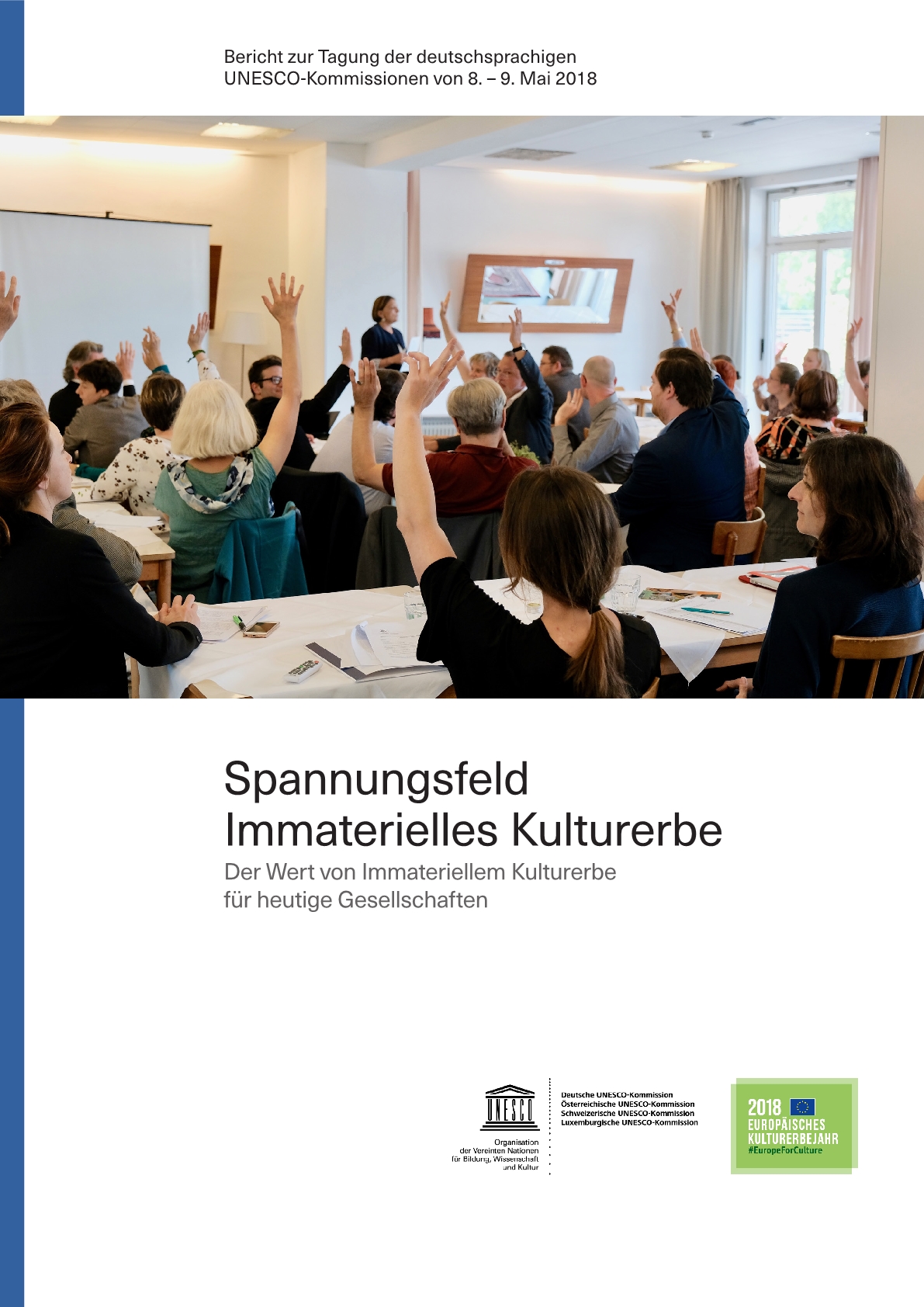During the International Conference entitled "Spannungsfeld Immaterielles Kulturerbe" the value of intangible cultural heritage for today's societies will be discussed in a joint event of the four German-speaking UNESCO National Commissions of Europe.
Intangible cultural heritage represents (partial) realities of life: The background and social context of lived traditions and practices, often with a long historical anchoring, usually experience high acceptance in the bearer group or local community. In a few cases, however, this acceptance is not shared by other parts of the population and publics in their own society as well as in other parts of the world: for example, when animals (animal use, taming, rituals) are involved, when it comes to experiential knowledge that may be in contrast to scientific findings (e.g. traditional healing methods), when it comes to gender issues (exclusion of either men or women in the practice), or when it comes to the participation of minorities or customs oriented towards religions and religious communities.
Even within the groups of sponsors, there are occasionally fault lines on these issues. The conference therefore addressed the following questions, among others: How can the social value of intangible cultural heritage and the tasks that UNESCO has imposed on the member states be assessed? And what is the significance of intangible cultural heritage for young people and for today's diverse society? About 60 experts in the field of ICH from Germany, Luxembourg, Switzerland and Austria discussed in Vienna which new dialogues and awareness processes the work on national inventories has triggered and where limits and blockades show up.
Output
A report summarizes the discussions and presentations on these topics and provides approaches for further thoughts. One insight of the participants was that the experts can initiate discourse processes that can lead to an empowerment of (marginalized) groups. On the way to a recognition as intangible cultural heritage, a participatory process with all stakeholders is important, which is presented transparently. In the various discussions about cultural practices and their acceptance, it became apparent that the time horizon and social embeddedness always need to be considered when implementing and dealing with contentious issues. Especially in the case of tensions/antagonisms in dealing with intangible cultural heritage, the regular exchange of involved actors on national and local level should be promoted.


![[Translate to EN:] © J. Ségur/ZED, with the permission of UNESCO](/fileadmin/_processed_/d/b/csm_Convention-2003-IKE_0832a6a47d.jpg)
![[Translate to EN:] © ÖUK](/fileadmin/_processed_/3/9/csm_P1011318_7eac86402f.jpg)

![[Translate to EN:] © Weitblickfilm](/fileadmin/_processed_/9/8/csm_Workshop_17_2dee1e1fd8.jpg)